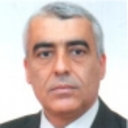Ethnopharmacological survey of medicinal plants practiced by traditional healers and herbalists for treatment of some urological diseases in the West Bank/Palestine.
Keywords
Abstract
BACKGROUND
Throughout history, every civilization in the world used plants or their derivatives for treatment or prevention of diseases. In Palestine as in many other countries, herbal medicines are broadly used in the treatment of wide range of diseases including urological diseases. The main objective of this research is to study the use of herbal remedies by herbalists and traditional healers for treatment of various urological diseases in the West Bank regions of Palestine and to assess their efficacy and safety through the literature review of the most cited plants.
METHODS
The study included a survey part, plant identification and a review study. The first part was a cross-sectional descriptive study. Face to face questionnaires were distributed to 150 traditional healers and herbalist in all regions of the West Bank of Palestine. The literature review part was to assess the most cited plants for their efficacy and toxicity.
RESULTS
One hundred forty four herbalists and traditional healers accepted to participate in this study which was conducted between March and April, 2016. The results showed that 57 plant species belonging to 30 families were used by herbalists and traditional healers for treatment of various urinary tract diseases in Palestine. Of these, Apiaceae family was the most prevalent. Paronychia argentea, Plantago ovata, Punica granatum, Taraxacum syriacum, Morus alba and Foeniculum vulgare were the most commonly used plant species in the treatment of kidney stones, while Capsella bursa-pastoris, Ammi visnaga and Ammi majus were the most recommended species for treatment of urinary tract infections and Portulaca oleracea used for renal failure. In addition Curcuma longa and Crocus sativus were used for enuresis while Juglans regia, Quercus infectoria, Sambucus ebulus and Zea mays were used for treatment symptoms of benign prostate hyperplasia. Fruits were the most common parts used, and a decoction was the most commonly used method of preparation. Through literature review, it was found that Paronychia argentea has a low hemolytic effect and contains oxalic acid and nitrate. Therefore, it could be harmful to renal failure patients, also Juglans regia, Quercus infectoria and, Sambucus ebulus are harmful plants and cannot be used for treatment of any disease.
CONCLUSIONS
Our data provided that ethnopharmacological flora in the West Bank regions of Palestine can be quite wealthy and diverse in the treatments of urinary tract diseases. Clinical trials and pharmacological tests are required evaluate safety and efficacy of these herbal remedies.


